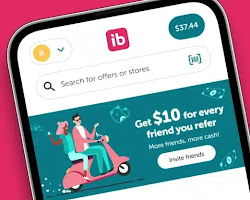 |
| Making Extra Money with a Smartphone |
Introduction:
1) Paid Surveys:
There are many legitimate paid survey sites available, but it's important to do your research before signing up. Some survey sites are scams that will only waste your time and personal information. Here are a few tips for finding legitimate paid survey sites:
- Read reviews from other users.
- Make sure the site is accredited by a reputable organization, such as the Better Business Bureau.
- Be wary of sites that promise to make you a lot of money quickly.
Once you've found a few legitimate paid survey sites, you can sign up and start taking surveys. You'll usually be asked to provide some basic demographic information, such as your age, gender, and location. You may also be asked to answer some screening questions to make sure you're a good fit for the survey.
If you're selected to take a survey, you'll be given a set of questions to answer. The length of the survey will vary, but most take between 10 and 20 minutes to complete. Once you've finished the survey, you'll be rewarded with your chosen incentive.
Paid surveys won't make you rich, but they can be a great way to earn some extra money in your spare time. If you're looking for a legitimate way to make some extra cash, paid surveys are worth considering.
Here are some of the most popular paid survey sites:
Swagbucks
InboxDollars
These sites are all reputable and offer a variety of surveys to choose from. You can sign up for multiple sites to increase your chances of qualifying for surveys and earning more money.
Here are some tips for getting the most out of paid surveys:
- Be honest in your answers. Market research companies are looking for honest feedback from consumers, so it's important to be truthful in your responses.
- Take surveys that are relevant to your interests. You'll be more likely to complete surveys that you're interested in, and you'll also be more likely to qualify for them.
- Don't be afraid to disqualify yourself from surveys. If you're not a good fit for a survey, don't waste your time taking it. There are plenty of other surveys available.
- Be patient. It may take some time to start earning money from paid surveys. But if you're persistent, you can eventually start earning a decent amount of extra money.
Paid surveys can be a fun and easy way to make some extra money in your spare time. If you're looking for a legitimate way to earn some extra cash, paid surveys are worth considering.
2) Freelance Work:
Freelance work is becoming increasingly popular as more and more people are looking for flexible and rewarding career options. If you're considering a career in freelancing, there are a few things you need to know.
What is freelance work?
Freelance work is when you work for yourself, typically on a project-by-project basis. You're your own boss and you set your own hours. This can be a great option if you're looking for more control over your work life.
What are the benefits of freelance work?
There are many benefits to freelance work, including:
- Flexibility: You can set your own hours and work from anywhere.
- Freedom: You're your own boss and you make your own decisions.
- Variety: You can work on a variety of projects and with a variety of clients.
- Income potential: Freelance workers can earn a high income, especially if they specialize in in-demand skills.
What are the challenges of freelance work?
There are also some challenges to freelance work, including:
- Uncertainty: There's no guarantee of a steady income or a steady workload.
- Loneliness: You may miss the camaraderie of working with colleagues in an office setting.
- Self-promotion: You need to be good at marketing yourself and your services.
- Managing your time: It can be difficult to stay organized and productive when you're working on your own.
How to get started as a freelancer
If you're thinking about becoming a freelancer, here are a few tips to get you started:
- Identify your skills and interests. What are you good at? What do you enjoy doing? These are the skills and interests that you can market to potential clients.
- Build a portfolio. A portfolio is a great way to showcase your skills and experience to potential clients. It can include samples of your work, testimonials from past clients, and links to your online presence.
- Network with other freelancers and professionals. Networking is a great way to meet potential clients and learn about freelance opportunities. Attend industry events, join online forums, and connect with people on LinkedIn.
- Set up your business. This includes getting a business license, setting up a website, and creating a contract for your clients.
- Market yourself. Once you're set up, you need to start marketing yourself and your services. This can be done through online platforms, social media, and networking.
3) Mobile Apps:
Mobile apps have become an essential part of our lives, and they're also a great way to make money. There are a number of different ways to earn money with mobile apps, and the amount of money you can make will vary depending on the app and the monetization strategy you choose.
Here are a few of the most popular ways to make money with mobile apps:
Which monetization strategy is right for you?
The best monetization strategy for you will depend on the type of app you've created and your target audience. If you're creating a free app, in-app advertising is a good option. If you're creating a paid app, in-app purchases or subscriptions may be a better choice. If you're not sure which monetization strategy is right for you, you can try out different strategies and see what works best.
How much money can you make with mobile apps?
The amount of money you can make with mobile apps will vary depending on the number of users you have, the monetization strategy you choose, and the price of your app. In general, you can expect to earn a few cents to a few dollars per user per month. However, some apps can earn much more than that. For example, the game "Candy Crush Saga" is estimated to have made over $2 billion in revenue in 2014.
Making money with mobile apps is not a get-rich-quick scheme. It takes time and effort to create a successful app and to build a large user base. However, if you're willing to put in the work, it can be a very rewarding experience.
Here are a few tips for making money with mobile apps:
- Create a high-quality app that users will love.
- Promote your app effectively.
- Choose the right monetization strategy.
- Be patient and persistent.
With hard work and dedication, you can make money with mobile apps.
4) Virtual Assistance:
A virtual assistant (VA) is a self-employed worker who provides administrative, technical, or creative assistance to clients from a remote location. Virtual assistants typically work from home offices and use technology to communicate and collaborate with their clients.
What are the benefits of being a virtual assistant?
There are many benefits to being a virtual assistant, including:
- Flexibility: Virtual assistants can set their own hours and work from anywhere in the world.
- Freedom: Virtual assistants are their own bosses and make their own decisions.
- Variety: Virtual assistants can work with a variety of clients and on a variety of projects.
- Income potential: Virtual assistants can earn a high income, especially if they specialize in in-demand skills.
What are the skills required to be a virtual assistant?
The skills required to be a virtual assistant vary depending on the specific tasks that the VA will be performing. However, some of the most common skills include:
- Organization: Virtual assistants need to be organized and efficient in order to manage multiple projects and deadlines.
- Communication: Virtual assistants need to be excellent communicators, both written and verbal.
- Technological proficiency: Virtual assistants need to be proficient in using a variety of software applications and computer programs.
- Customer service: Virtual assistants need to be able to provide excellent customer service to their clients.
- Problem-solving: Virtual assistants need to be able to identify and solve problems quickly and efficiently.
How to become a virtual assistant?
There are a few different ways to become a virtual assistant. One way is to start by offering your services to friends, family, or former colleagues. Once you have some experience, you can start to market your services to a wider audience. You can also find virtual assistant jobs on online job boards or through networking.
To become a successful virtual assistant, it is important to have a strong online presence. This includes having a well-designed website or online portfolio, as well as being active on social media. You should also be prepared to invest in some basic business tools, such as a CRM system and project management software.
Virtual assistance can be a great career option for people who are looking for flexibility, freedom, and variety. If you are organized, efficient, and have strong communication and technical skills, then you may be well-suited for a career as a virtual assistant.
Here are some tips for becoming a successful virtual assistant:
- Define your niche: What are you good at? What do you enjoy doing? Once you know your niche, you can market your services to businesses that need help with those specific tasks.
- Build your portfolio: Create a website or online portfolio that showcases your skills and experience. This will help you attract potential clients.
- Network: Attend industry events, connect with other virtual assistants on social media, and reach out to potential clients in your network.
- Be professional: Dress professionally, be on time for meetings, and communicate effectively.
- Be reliable: Meet deadlines and deliver high-quality work.
- Be responsive: Be available to answer questions and address concerns promptly.
If you can follow these tips, you'll be well on your way to a successful career as a virtual assistant.
5) Online Marketplaces
Types of Online Marketplaces
There are many different types of online marketplaces, each with its own focus. Some of the most common types of online marketplaces include:
- B2B marketplaces: These marketplaces connect businesses with other businesses. For example, an online marketplace for industrial supplies might connect manufacturers with distributors.
 |
| B2C marketplace website |
C2C marketplaces: These marketplaces connect consumers with other consumers. For example, eBay is a C2C marketplace that allows consumers to buy and sell used goods.
Benefits of Online Marketplaces
There are many benefits to using online marketplaces, both for businesses and consumers. Some of the key benefits include:
- Reach a wider audience: Online marketplaces can help businesses reach a wider audience than they could through traditional channels, such as brick-and-mortar stores or print advertising.
- Increased sales: Online marketplaces can help businesses increase sales by providing a convenient and easy way for consumers to find and purchase their products or services.
- Reduced costs: Online marketplaces can help businesses reduce costs by eliminating the need for a physical storefront or other traditional retail channels.
- Improved customer service: Online marketplaces can help businesses improve customer service by providing a centralized platform for customers to ask questions, make returns, and get support.
- Data insights: Online marketplaces can provide businesses with valuable data insights about their customers, such as demographics, buying habits, and interests. This data can be used to improve marketing campaigns and product offerings.
How to Choose the Right Online Marketplace
When choosing an online marketplace, there are a few factors you should consider, such as:
- The type of products or services you sell: Some marketplaces are better suited for certain types of products or services than others. For example, Amazon is a good choice for businesses that sell a wide variety of products, while eBay is a good choice for businesses that sell used goods.
- Your target audience: Consider where your target audience spends time online. If your target audience is active on social media, you might want to consider a marketplace that is integrated with social media platforms.
- The fees charged by the marketplace: Online marketplaces typically charge fees to sellers, so it's important to compare the fees charged by different marketplaces before you choose one.
- The level of customer support offered by the marketplace: If you need help with your account or with a customer issue, you'll want to choose a marketplace that offers good customer support.
Content Creation
Online content creation is the process of creating and publishing content for the internet. This can include text, images, videos, audio, and interactive elements. Online content can be created for a variety of purposes, such as:
- To inform and educate
- To entertain
- To sell products or services
- To build relationships
- To promote a cause
No matter what the purpose, online content creation is an important skill for anyone who wants to be successful in the digital world.
The Basics of Online Content Creation
There are a few basic principles that all online content creators should follow:
- Create high-quality content: Your content should be well-written, well-researched, and visually appealing.
- Target your audience: Know who you're writing for and tailor your content to their interests.
- Use keywords: When you're creating content, use keywords that people are likely to search for. This will help your content show up in search results.
- Promote your content: Once you've created your content, promote it on social media, your website, and other online channels.
Types of Online Content
There are many different types of online content that you can create. Some of the most common types include:
- Blog posts: Blog posts are a great way to share your thoughts and ideas with the world.
- Articles: Articles are longer and more in-depth than blog posts. They're a good way to cover a specific topic in detail.
- Videos: Videos are a great way to engage your audience and share your message visually.
- Podcasts: Podcasts are a great way to share your voice and connect with your audience on a personal level.
- Infographics: Infographics are a great way to present complex information in a visually appealing way.
- Ebooks: Ebooks are a great way to share your expertise and knowledge with the world.
- Presentations: Presentations are a great way to share your ideas with a large audience.
The Future of Online Content Creation
The future of online content creation is bright. As the internet continues to grow, there will be an increasing demand for high-quality content. This means that there are many opportunities for creators who can produce engaging and informative content.
If you're interested in creating online content, there are a few things you can do to get started:
- Learn the basics of online content creation: There are many resources available online that can teach you the basics of online content creation.
- Find your niche: What are you passionate about? What do you know a lot about? Once you know your niche, you can start creating content that caters to your audience.
- Promote your content: Once you've created your content, you need to promote it so that people can find it. You can promote your content on social media, your website, and other online channels.
- Be patient: It takes time to build an audience and establish yourself as a content creator. Don't get discouraged if you don't see results immediately. Just keep creating great content and promoting it, and you will eventually start to see results.
Online content creation can be a rewarding and fulfilling experience. If you're creative and have something to say, then online content creation is a great way to share your ideas with the world.
Micro-Influencing
Influencer marketing has been around for a while now, but it's only in recent years that micro-influencers have started to gain traction. Micro-influencers are people with a relatively small but engaged following on social media. They typically have between 1,000 and 100,000 followers.
Micro-influencers are becoming increasingly popular with brands because they offer a number of advantages over traditional influencers. First, they are more affordable. Brands can work with micro-influencers for a fraction of the cost of working with a celebrity or a major influencer.
Second, micro-influencers are more authentic. They have a more personal connection with their followers, which makes their recommendations more likely to be trusted.
Third, micro-influencers are more specialized. They often focus on a specific niche or interest, which means they can reach a more targeted audience.
If you're considering using micro-influencers for your marketing campaigns, there are a few things you need to keep in mind. First, you need to find micro-influencers who are relevant to your brand and your target audience. You also need to make sure that the micro-influencers you work with are creating high-quality content that your target audience will enjoy.
Once you've found the right micro-influencers, you need to develop a mutually beneficial relationship with them. This means providing them with the resources they need to create great content, and being willing to pay them a fair price for their services.
If you do things right, micro-influencer marketing can be a very effective way to reach your target audience and grow your business.
Here are some tips for finding and working with micro-influencers:
- Identify your target audience: What are their interests? What social media platforms do they use? Once you know who you're trying to reach, you can start looking for micro-influencers who have a following of people who match your target audience.
- Do your research: Once you've found a few potential micro-influencers, take some time to research them. Look at their content, their engagement rates, and their overall following. You want to make sure that they're a good fit for your brand and your target audience.
- Reach out to micro-influencers: Once you've found a few micro-influencers that you're interested in working with, reach out to them and introduce yourself. Explain your brand and your marketing goals, and see if they're interested in working with you.
- Offer micro-influencers something of value: Micro-influencers are more likely to work with you if you offer them something of value in return. This could be free products or services, exposure to your brand, or even just a shout-out on their social media channels.
- Be transparent: When you're working with micro-influencers, it's important to be transparent about your expectations. Let them know what you're looking for in terms of content, engagement, and promotion.
- Monitor results: Once you've started working with micro-influencers, it's important to monitor the results of your campaigns. This will help you determine if your campaigns are effective and if you need to make any changes.
Online Tutoring
Online tutoring has been around for a while now, but it's only in recent years that it has started to gain widespread adoption. There are a number of reasons for this, including the increasing availability of high-speed internet, the rise of social media, and the growing popularity of distance learning.
Online tutoring offers a number of advantages over traditional in-person tutoring. First, it is more convenient for both students and tutors. Students can access their tutors from anywhere with an internet connection, and tutors can work from home or from anywhere else that they have an internet connection.
Second, online tutoring is more affordable than traditional in-person tutoring. Students can save money on transportation and other costs associated with in-person tutoring.
Third, online tutoring is more flexible. Students can schedule sessions at times that work for them, and they can switch between different tutors if they are not satisfied with their current tutor.
Fourth, online tutoring is more accessible. Students who live in rural areas or who have disabilities can access high-quality tutoring without having to travel long distances or make special accommodations.
Of course, there are also some disadvantages to online tutoring. First, it can be difficult to build a rapport with a tutor over the internet. Second, it can be difficult to keep students engaged in online tutoring sessions. Third, online tutoring may not be as effective for students who need one-on-one attention or who have learning disabilities.
Overall, online tutoring is a viable option for students who are looking for convenient, affordable, and flexible tutoring. However, it is important to weigh the advantages and disadvantages of online tutoring before making a decision.
Here are some of the benefits of online tutoring:
- Convenience: Students can access their tutors from anywhere with an internet connection. This means that they can get help with their studies even if they are not able to travel to a tutor's office.
- Affordability: Online tutoring is often more affordable than traditional in-person tutoring. This is because tutors do not have to rent office space or pay for travel expenses.
- Flexibility: Students can schedule online tutoring sessions at times that work for them. This is especially helpful for students who have busy schedules or who live in different time zones.
- Access: Online tutoring can be accessed by students all over the world. This means that students can get help from tutors who are experts in their subject area, regardless of where they live.
Here are some of the challenges of online tutoring:
- Building rapport: It can be more difficult to build rapport with a tutor over the internet than in person. This is because students and tutors do not have the same opportunities to interact with each other.
- Engagement: Students may not be as engaged in online tutoring sessions as they would be in in-person sessions. This is because students may be more easily distracted when they are working from home.
- Technological issues: There may be technological issues that can disrupt online tutoring sessions. This could include problems with the internet connection, the video conferencing software, or the tutor's computer.
Overall, online tutoring is a viable option for students who are looking for convenient, affordable, and flexible tutoring. However, it is important to weigh the advantages and disadvantages of online tutoring before making a decision.
Cashback Apps
Cashback apps are a great way to save money on your everyday purchases. These apps offer cash back on a variety of products and services, from groceries to clothes to travel.
How do cashback apps work? When you shop through a cashback app, the app will track your purchase and then give you a percentage of your money back. The amount of cash back you earn will vary depending on the app and the retailer.
There are many different cashback apps available, so it's important to compare them before you choose one. Some factors to consider include the number of retailers that offer cash back, the percentage of cash back that is offered, and the fees that the app charges.
Here are a few of the most popular cashback apps:
- Rakuten: Rakuten is one of the most popular cashback apps. It offers cash back on a wide variety of retailers, including Amazon, Walmart, and Target.
- Ibotta: Ibotta is another popular cashback app. It offers cash back on groceries, home goods, and other products
- Shopkick: Shopkick is a cashback app that rewards you for walking into stores and scanning products.
- Dosh: Dosh is a cashback app that rewards you for making purchases at participating retailers.
App Development
Mobile apps are everywhere. We use them to stay connected, get work done, and entertain ourselves. But what goes into creating a successful mobile app?
The first step is to come up with a great idea. What problem will your app solve? What need will it fill? Once you have a great idea, you need to do your research. See if there are other apps out there that do the same thing as yours. If there are, how can your app be better?
Once you've done your research, it's time to start designing your app. This includes coming up with the app's user interface (UI) and user experience (UX). The UI is what the user sees and interacts with, while the UX is how the user feels when using the app.
Once the design is complete, it's time to start coding. This is where you'll bring your app to life. There are many different programming languages that you can use to code an app. The most popular languages for mobile app development are Java, Swift, and Kotlin.
After the coding is complete, it's time to test your app. This is where you'll find and fix any bugs. You can test your app on your own devices, or you can get beta testers to help you out.
Once your app is tested and ready to go, it's time to publish it. There are two main app stores: the App Store and Google Play. To publish your app on these stores, you'll need to pay a fee.
Publishing your app is just the beginning. You'll need to promote your app and get people to download it. You can do this through social media, search engine optimization (SEO), and paid advertising.
Creating a successful mobile app takes time, effort, and a lot of learning. But if you're willing to put in the work, it can be a very rewarding experience.
 |
| Mobile app development process |
Here are some additional tips for creating a successful mobile app:
- Start with a small, focused app. Don't try to build the next Facebook or Instagram. Start with a small, focused app that you can complete in a reasonable amount of time.
- Make sure your app is visually appealing. People are more likely to use an app that looks good.
- Make sure your app is easy to use. The user interface should be simple and intuitive.
- Add features that people will love. What features would make your app stand out from the competition?
- Promote your app. Once your app is published, you need to let people know about it. You can do this through social media, search engine optimization (SEO), and paid advertising.
- Keep updating your app. As new features are released for mobile devices, you'll need to update your app to keep it compatible. You should also add new features and fix bugs as needed.
By following these tips, you can increase your chances of creating a successful mobile app.
Rent Your Belongings
Sure, here is a blog post about renting your belongings:
Rent Your Belongings and Make Extra Cash
Do you have belongings that you don't use very often? If so, you could be making extra cash by renting them out. There are a number of websites and apps that allow you to rent out your belongings to people in your local area.
This is a great way to declutter your home and make some extra money. Plus, it's a sustainable way to share resources and reduce waste.
Here are a few of the websites and apps that you can use to rent out your belongings:
- ThredUp: Thredup is a website where you can sell or rent clothes, accessories, and home goods.
- Rent the Runway: Rent the Runway is a website where you can rent high-end fashion clothing.
- Getaround: Getaround is an app where you can rent out your car to people in your local area.
- Airbnb: Airbnb is an app where you can rent out your home or apartment to people who are traveling.
- Butterfly List: Butterfly List is an app where you can rent out your furniture, appliances, and other home goods.
When you rent out your belongings, there are a few things you need to keep in mind:
- Set a fair price. When setting a price, consider the value of your belongings and the demand for them in your area.
- Take good photos. Clear, well-lit photos will make your belongings more appealing to potential renters.
- Provide clear descriptions. Be sure to include a detailed description of each item you're renting, including its condition and any relevant features.
- Be responsive to inquiries. When someone inquires about renting one of your belongings, be sure to respond promptly and answer any questions they may have.
- Meet with renters in person. This is especially important if you're renting out high-value items or items that are sensitive to damage.
- Get a deposit. This will help protect you in case the renter damages your belongings.
- Have renters sign a contract. This will outline the terms of the rental agreement and protect both you and the renter.
Renting out your belongings can be a great way to make some extra cash and declutter your home. By following these tips, you can ensure a smooth and successful rental experience.






























0 Comments